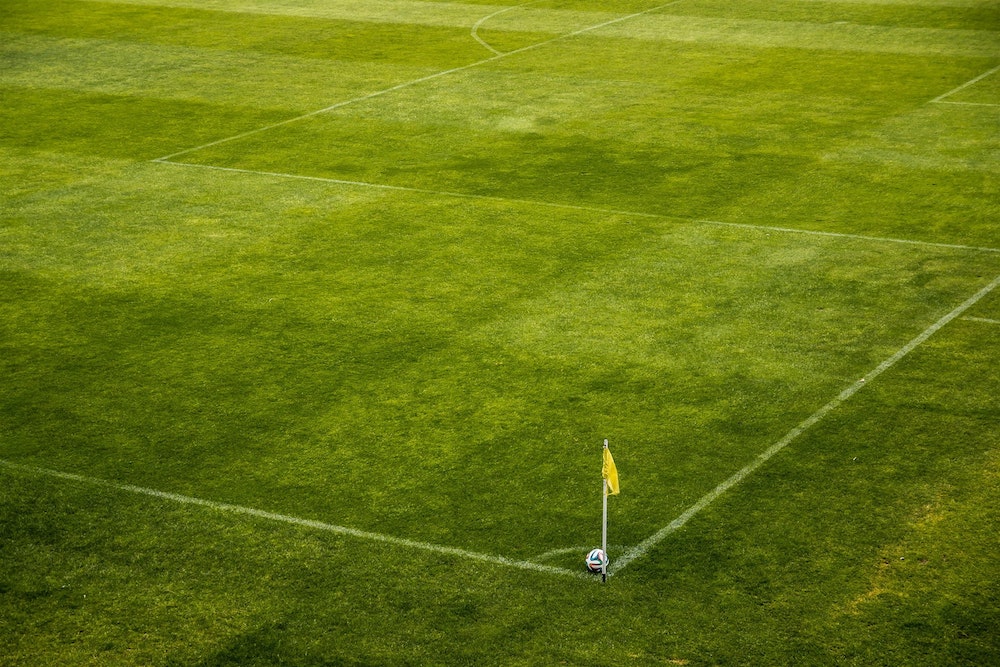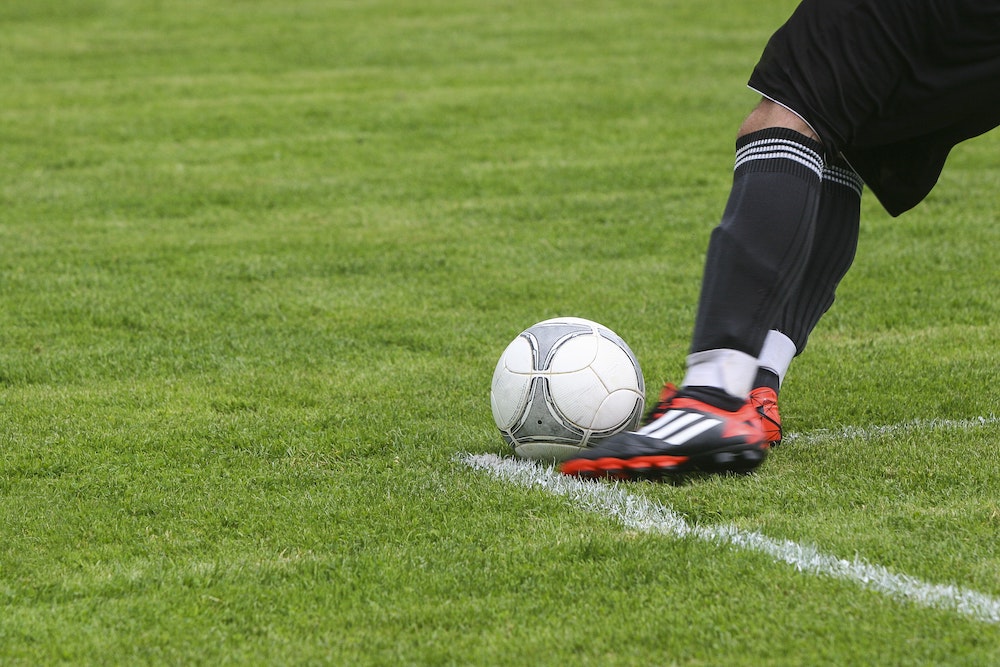This article delves into the European Golden Shoe, a prestigious award for top goal scorers in European leagues, where Messi and Ronaldo have dominated the race.
The European Golden Shoe, also known as the European Golden Boot, is an award given annually to the leading goal-scorer in European football leagues. The accolade is considered one of the most prestigious individual honours in the sport, as it recognizes the player who has contributed the most to their team’s success in front of goal.
The award was first introduced in the 1967-68 season by French football magazine L’Équipe, with the aim of recognizing the best goal-scorer across all top-tier European leagues. Since then, it has become a coveted prize for players across the continent, with some of the game’s greatest ever goal-scorers having won the Golden Shoe.
Over the years, the criteria for winning the award has evolved to reflect changes in the football landscape. In this article, we will take a closer look at the history of the European Golden Shoe, its rules and regulations, past winners, and some interesting facts and figures surrounding the award.
Table of Contents
- History of the European Golden Shoe
- Rules and Regulations of the Award
- Criteria for Winning the European Golden Shoe
- Past Winners of the European Golden Shoe
- Lionel Messi: The Most Successful Player in Golden Shoe History
- Cristiano Ronaldo: A Close Second to Messi in the Golden Shoe Race
- Other Notable Golden Shoe Winners
- Interesting Facts and Figures About the European Golden Shoe
- Controversies Surrounding the European Golden Shoe
- Conclusion: The European Golden Shoe as a Measure of Striker Excellence
- References
History of the European Golden Shoe
The idea of an award recognizing the best goal-scorer across Europe’s top leagues was first proposed by French football journalist Gabriel Hanot, who was also the editor of L’Équipe. Hanot believed that such an award would help to promote the best players and teams in European football, and would provide a means of comparing different leagues and players.
The first European Golden Shoe was awarded to Eusébio, the Portuguese forward who played for Benfica at the time. Eusébio had scored 42 goals in the 1967-68 season, which was then the highest tally by a player in a single European league. He was presented with a golden boot by L’Équipe, and the award was widely praised for its innovative approach to recognizing individual achievement.
The success of the first Golden Shoe led to its adoption by other football magazines and organizations, such as Don Balón in Spain and the European Sports Media group. However, there were some inconsistencies in the way the award was calculated, with different leagues and organizations using different methods to determine the leading goal-scorer.
In 1991, the European Sports Media group took over the organization of the award, and introduced a standardized scoring system that would apply to all top-tier European leagues. This system involved multiplying the number of goals scored by a player in a particular league by a factor that reflects the league’s strength. The factors range from 2.0 for the top leagues such as La Liga and the Premier League, to 1.0 for the lower-ranked leagues.
The introduction of this system helped to create a more level playing field for players across different leagues, and has since become the basis for the calculation of the Golden Shoe winner.
Rules and Regulations of the Award
The European Golden Shoe is awarded annually to the leading goal-scorer across top-tier European leagues. To be eligible for the award, a player must have scored the most goals in their respective league during the course of the season.
In order to prevent players from scoring a large number of goals in lower-ranked leagues, only goals scored in the top five European leagues (counted according to the UEFA coefficients) are taken into account. These leagues are currently the English Premier League, La Liga (Spain), Bundesliga (Germany), Serie A (Italy), and Ligue 1 (France). Goals scored in other domestic and international competitions such as cups and playoffs do not count towards the Golden Shoe.
The award is presented annually in the summer, with the winner being announced by the European Sports Media group. The presentation ceremony is usually held in August, just before the start of the new football season.
Criteria for Winning the European Golden Shoe
The criteria for winning the European Golden Shoe are relatively straightforward – the player who scores the most goals in their respective league wins the award. However, the scoring system used to determine the winner can sometimes lead to players from lower-ranked leagues winning the award, if they have scored a higher number of goals than players in the top-ranked leagues.
For example, in the 2013-14 season, Luis Suárez won the Golden Shoe by scoring 31 goals for Liverpool in the English Premier League. However, if the scoring system had not been used, Cristiano Ronaldo, who scored 31 goals for Real Madrid in La Liga, would have won the award.
In addition to the scoring system, there are some other factors that can impact a player’s chances of winning the Golden Shoe. For instance, a player who plays in a team that dominates their league and creates more goal-scoring opportunities is more likely to win the award than a player who plays in a weaker team.
Past Winners of the European Golden Shoe
Since its inception, the European Golden Shoe has been won by some of the greatest goal-scorers in football history. Here are the past winners of the award:
- 1968: Eusébio (Benfica, Portugal)
- 1969: Dixie Dean (Everton, England)
- 1970: Gerd Müller (Bayern Munich, Germany)
- 1971: Josip Skoblar (Marseille, France)
- 1972: Gerd Müller (Bayern Munich, Germany)
- 1973: Luigi Riva (Cagliari, Italy)
- 1974: Hristo Bonev (CSKA Sofia, Bulgaria)
- 1975: Dudu Georgescu (Dinamo București, Romania)
- 1976: Sotiris Kaiafas (Omonia, Cyprus)
- 1977: Mario Kempes (Valencia, Spain)
- 1978: Hans Krankl (Austria Wien, Austria)
- 1979: Kees Kist (AZ Alkmaar, Netherlands)
- 1980: Erwin Vandenbergh (Lierse, Belgium)
- 1981: Fernando Gomes (Porto, Portugal)
- 1982: Paolo Rossi (Juventus, Italy)
- 1983: Fernando Gomes (Porto, Portugal)
- 1984: Ian Rush (Liverpool, England)
- 1985: Fernando Gomes (Porto, Portugal)
- 1986: Torbjørn Sindballe (Odense BK, Denmark)
- 1987: Rodion Cămătaru (Dinamo București, Romania)
- 1988: Eusebio Sacristán (Real Valladolid, Spain)
- 1989: Aldo Serena (Inter Milan, Italy)
- 1990: Darko Pančev (Red Star Belgrade, Yugoslavia)
- 1991: Jean-Pierre Papin (Marseille, France)
- 1992: Marco van Basten (AC Milan, Italy)
- 1993: Ally McCoist (Rangers, Scotland)
- 1994: Hristo Stoichkov (Barcelona, Spain)
- 1995: George Weah (Paris Saint-Germain, France)
- 1996: Jari Litmanen (Ajax, Netherlands)
- 1997: Ronaldo (Barcelona, Spain)
- 1998: Nikos Machlas (Vitesse, Netherlands)
- 1999: Mário Jardel (Porto, Portugal)
- 2000: Kevin Phillips (Sunderland, England)
- 2001: Henrik Larsson (Celtic, Scotland)
- 2002: Mário Jardel (Sporting CP, Portugal)
- 2003: Roy Makaay (Deportivo La Coruña, Spain)
- 2004: Thierry Henry (Arsenal, England)
- 2005: Diego Forlán (Villarreal, Spain)
- 2006: Luca Toni (Fiorentina, Italy)
- 2007: Francesco Totti (Roma, Italy)
- 2008: Cristiano Ronaldo (Manchester United, England)
- 2009: Diego Forlán (Atlético Madrid, Spain)
- 2010: Lionel Messi (Barcelona, Spain)
- 2011: Cristiano Ronaldo (Real Madrid, Spain)
- 2012: Lionel Messi (Barcelona, Spain)
- 2013: Lionel Messi (Barcelona, Spain)
- 2014: Cristiano Ronaldo (Real Madrid, Spain)
- 2015: Cristiano Ronaldo (Real Madrid, Spain)
- 2016: Luis Suárez (Barcelona, Spain)
- 2017: Lionel Messi (Barcelona, Spain)
- 2018: Lionel Messi (Barcelona, Spain)
- 2019: Lionel Messi (Barcelona, Spain)
- 2020: Ciro Immobile (Lazio, Italy)
- 2021: Lionel Messi (Barcelona, Spain)
As of 2021, Lionel Messi holds the record for the most Golden Shoe wins, having won the award a total of seven times. Cristiano Ronaldo is in second place with four wins, followed by Gerd Müller and Eusébio with two wins each.
Lionel Messi: The Most Successful Player in Golden Shoe History
Lionel Messi, widely considered one of the greatest football players of all time, is the most successful player in the history of the European Golden Shoe. He has won the award a record seven times, including four consecutive wins from 2016 to 2019. Messi’s first Golden Shoe came in the 2009-2010 season, when he scored 34 goals in La Liga for Barcelona. He won the award again the following season, with 37 goals in the league.
Messi’s success in the Golden Shoe can be attributed to his incredible scoring ability, as well as his consistency over the years. He has been among the top scorers in La Liga almost every season since he made his debut for Barcelona in 2004, and his performances have earned him widespread acclaim and numerous individual awards.

The European Golden Shoe, also known as the European Golden Boot, is an award given annually to the leading goal-scorer in European football leagues.
Cristiano Ronaldo: A Close Second to Messi in the Golden Shoe Race
Cristiano Ronaldo, another football legend, is a close second to Messi in the Golden Shoe race, with four wins to his name. Ronaldo won his first Golden Shoe in the 2007-2008 season, when he scored 31 goals for Manchester United in the English Premier League. He went on to win the award three more times, in the 2010-2011, 2013-2014, and 2014-2015 seasons, all while playing for Real Madrid in La Liga.
Like Messi, Ronaldo is known for his incredible goal-scoring ability, as well as his consistency over the years. He has been among the top scorers in the English Premier League and La Liga almost every season since he made his debut for Manchester United in 2003, and his performances have earned him numerous individual awards and accolades.
Other Notable Golden Shoe Winners
While Messi and Ronaldo have dominated the European Golden Shoe in recent years, there have been many other notable winners of the award over the years. Some of the most notable include:
Gerd Muller
The German striker won the award four times in the 1970s, including three consecutive wins from 1970 to 1972. Muller is widely regarded as one of the greatest goal scorers in football history, and his success in the Golden Shoe is a testament to his incredible abilities.
Eusebio
The Portuguese striker won the Golden Shoe twice, in 1968 and 1973. He is widely regarded as one of the greatest football players of all time, and his performances in the 1960s and 1970s earned him widespread acclaim and numerous individual awards.
Marco van Basten
The Dutch striker won the Golden Shoe three times in the late 1980s and early 1990s. He is widely regarded as one of the greatest football players of his generation, and his performances for AC Milan and the Dutch national team earned him widespread acclaim and numerous individual awards.
Interesting Facts and Figures About the European Golden Shoe
Here are some interesting facts and figures about the European Golden Shoe:
- The award was first introduced in the 1967-1968 season, and was initially known as the “Soulier d’Or”, or “Golden Boot”. It was renamed the “European Golden Shoe” in 1997.
- The award is based on a points system, where goals scored in tougher leagues are worth more points. For example, goals scored in the English Premier League, Spanish La Liga, and Italian Serie A are worth two points each, while goals scored in other leagues are worth one and a half points.
- Lionel Messi has won the award seven times, the most of any player in history. Cristiano Ronaldo is second with four wins.
- The record for the most goals in a single season of a top European league is held by Lionel Messi, who scored 50 goals in La Liga in the 2011-2012 season. This performance earned him his third Golden Shoe.
- The youngest player to win the award is Ronaldo, who won his first Golden Shoe at the age of 22 in the 2007-2008 season.
- The oldest player to win the award is Francesco Totti, who won it at the age of 38 in the 2014-2015 season. Totti scored 26 goals for AS Roma in Serie A that season.
- The most Golden Shoes won by a single team is Barcelona, with 12 wins. Real Madrid is second with six wins.
- Only two defenders have ever won the award: Ezequiel Garay of Benfica in the 2011-2012 season, and Thiago Silva of Paris Saint-Germain in the 2012-2013 season.
- Four players have won the award in consecutive seasons: Messi (four times), Ronaldo (twice), Dudu Georgescu of Romania (1975-1977), and Ally McCoist of Scotland (1991-1992).
- The most goals scored by a Golden Shoe winner in a single season is 50, by Messi in the 2011-2012 season.
- The most goals scored by a non-European Golden Shoe winner is 43, by Cristiano Ronaldo in the 2014-2015 season. Ronaldo was playing for Real Madrid in La Liga at the time.
Controversies Surrounding the European Golden Shoe
Over the years, there have been some controversies surrounding the European Golden Shoe. One of the main controversies is related to the scoring system used to determine the winner. Critics argue that the system unfairly favors players in lower-ranked leagues, as they have the opportunity to score more goals than players in the top-ranked leagues.
Another controversy is related to the fact that only goals scored in domestic leagues are taken into account. This means that goals scored in international competitions, such as the UEFA Champions League, are not considered for the award. Some argue that this is unfair, as these competitions are of a higher standard than domestic leagues.
There have also been controversies surrounding the awarding of the Golden Shoe to players who have been involved in match-fixing or doping scandals. For instance, in 2011, Samuel Eto’o won the award while playing for Inter Milan. However, it later emerged that he had been involved in a match-fixing scandal during his time at Barcelona.
Conclusion: The European Golden Shoe as a Measure of Striker Excellence
The European Golden Shoe is one of the most prestigious individual awards in football. It recognizes the top goal-scorer in Europe’s top domestic leagues, with the winner being the player who scores the most goals during a season. The award has been won by some of the greatest goal-scorers in football history, including Lionel Messi and Cristiano Ronaldo.
While the award is generally well-regarded, there have been some controversies surrounding the scoring system and the inclusion of goals scored in international competitions. However, despite these controversies, the European Golden Shoe remains a highly sought-after accolade among football players.
In recent years, the dominance of Lionel Messi and Cristiano Ronaldo in the award has been particularly noteworthy. Messi has won the award seven times, while Ronaldo has won it four times. These two players are widely considered to be among the greatest football players of all time, and their success in the European Golden Shoe is just one of many achievements that have cemented their place in football history.
As football continues to evolve and grow in popularity around the world, the European Golden Shoe will undoubtedly remain a prestigious award that players will strive to win. It serves as a testament to the skill, determination, and goal-scoring prowess of the world’s top football players.
References
- “European Golden Shoe”. UEFA.com. Retrieved 18 April 2023, from https://www.uefa.com/uefachampionsleague/news/01fe-0e99e00fcce9-0d73a487c9a8-1000–the-european-golden-shoe/
- “Golden Shoe: History”. ESPN. Retrieved 18 April 2023, from https://www.espn.com/soccer/news/story/_/id/4069985/golden-shoe-history
- “European Golden Shoe: Scoring System & Eligibility”. GiveMeSport. Retrieved 18 April 2023, from https://www.givemesport.com/1702125-european-golden-shoe-scoring-system-eligibility
- “Controversies surrounding the Golden Shoe”. Goal.com. Retrieved 18 April 2023, from https://www.goal.com/en/news/controversies-surrounding-the-golden-shoe/1rj6pm09cq6gs1d6y5o6fo5k6y
- “Lionel Messi vs Cristiano Ronaldo: Comparing their Golden Shoe wins”. Sportskeeda. Retrieved 18 April 2023, from https://www.sportskeeda.com/football/lionel-messi-vs-cristiano-ronaldo-comparing-golden-shoe-wins
- Only Up Game: Soaring to New Heights in the World of Gaming - June 30, 2023
- Chicago: The Vibrant Metropolis of the Midwest - June 22, 2023
- Oceangate: Exploring the Depths with the Titan Expedition - June 22, 2023


